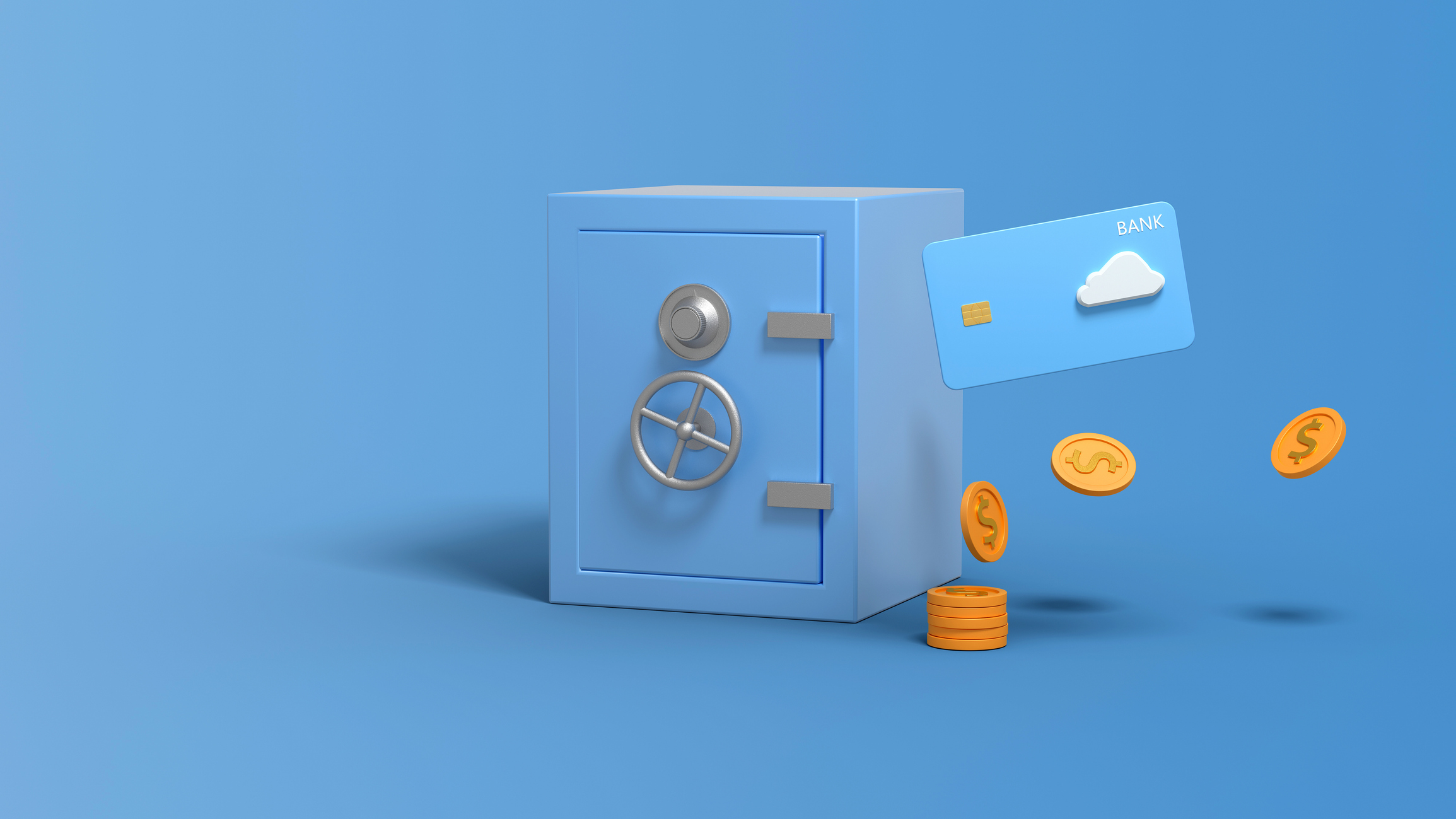How to Freeze Your Credit in Three Steps
Freezing your accounts at the three major credit bureaus is the best way to prevent thieves from opening new credit accounts in your name.

Profit and prosper with the best of Kiplinger's advice on investing, taxes, retirement, personal finance and much more. Delivered daily. Enter your email in the box and click Sign Me Up.
You are now subscribed
Your newsletter sign-up was successful
Want to add more newsletters?

It used to be that you'd freeze your credit if you'd suffered identity theft or some other compromise of your personal information. But as data breaches have piled up, a pre-emptive credit freeze has become a popular way to protect your credit, even if a thief hasn't yet made fraudulent use of your info.
Being proactive is only one way to protect your identity. There are many other ways to keep your credit secret, which we'll cover in the article.
We'll also explain how a credit freeze works and how to set one up to protect your most important data from digital thieves.
From just $107.88 $24.99 for Kiplinger Personal Finance
Become a smarter, better informed investor. Subscribe from just $107.88 $24.99, plus get up to 4 Special Issues

Sign up for Kiplinger’s Free Newsletters
Profit and prosper with the best of expert advice on investing, taxes, retirement, personal finance and more - straight to your e-mail.
Profit and prosper with the best of expert advice - straight to your e-mail.
What does a credit freeze do?
When you put a credit freeze (sometimes called a security freeze) in place, new creditors can't review your credit reports to judge whether you're eligible for a credit card or loan — and in turn, lenders are unlikely to grant credit to fraudsters posing as you. When you need to shop for credit for yourself, you can temporarily lift the freeze.
How much does a credit freeze cost?
Do I have to pay to freeze my credit? Nope. Placing and lifting a freeze is free at each of the major credit agencies, thanks to federal law.
How do I freeze my credit?
To set up a credit freeze, take these three steps.
1. Gather your information. In the past, all three of the credit agencies had consumers use a PIN to confirm their identities when they wanted to temporarily lift or permanently remove a freeze. But TransUnion, Equifax and Experian no longer require a PIN.
Instead, you can set up a password-protected online account or provide identity-verification information by phone or mail. But if you go online, you can manage your freeze with a password-protected account instead.
2. Contact each credit agency. The web pages or phone numbers below are the quickest avenues to imposing a freeze. To submit your request by mail, use these addresses.
Freeze your credit with Equifax
Equifax Information Services LLC,
P.O. Box 105788,
Atlanta, GA 30348
(Fill out and submit this form to request a freeze by mail.)
888-298-0045
Freeze your credit with Experian
Experian Security Freeze,
P.O. Box 9554
Allen, TX 75013
888-397-3742
Freeze your credit with TransUnion
TransUnion
P.O. Box 160
Woodlyn, PA 19094
888-909-8872
3. Save your passwords. We're all guilty of using the same passwords for everything. However, that also means if hackers can crack your password, it won't take them long to access all of your information.
For this reason, having a password manager is essential. Some of the top options include Dashlane and NordPass. They can create unique passwords for each of your online accounts to keep you safe and store them securely for when you need to use them.
Norton protects your data by monitoring hundreds of millions of data points per minute.
Other steps to protect your credit

- Monitor your credit reports regularly. While you can receive a free credit report from each bureau annually, a service like MyFico helps you stay on top of any credit changes, like new accounts opening or inquiries. And if you don't recognize any changes, you can place freezes on your credit history right away before more damage happens.
- Store documents securely. If you can, sign up for electronic statements with your lenders. They'll arrive in your email, reducing the likelihood of anyone intercepting information through the mail. You can also use a service like Quicken's LifeHub for cloud storage. That way, you can shred paper files and gain access to them on the go, anytime you need them.
- Use a password manager. A password manager creates difficult passwords to crack and stores them securely for you. Services like 1Password protect every aspect of your digital life, tying in all your online accounts with all of your devices in one hub to secure all data points.
- Secure your internet: If you use home Wi-Fi, ensure your phone, computer and router have updated software. This can minimize security vulnerabilities thieves use to hack into Wi-Fi.
- Use credit repair services to fix errors. If you notice errors in your credit report, you might be wondering how to fix them. Credit Saint specializes in helping customers improve their credit scores by working on their behalf to remove incorrect information on their credit reports.
Being proactive pays off
Data breaches happen all the time. As such, knowing all the credit monitoring tools at your disposal can help you keep up to date with any changes. In turn, you can take action promptly if someone tries to open an account in your name.
Just remember to freeze your credit with each credit agency. That way, if your information is compromised, you can stop them from harming your credit. And if you don't plan to use your credit anytime soon, freezing it doesn't do any harm, yet it protects your information from being used.
Related Content
- Things to Do Immediately If You're Involved in a Data Breach
- How to Fix Errors in Your Credit Report
- How to Protect Your Home From Deed Theft
Profit and prosper with the best of Kiplinger's advice on investing, taxes, retirement, personal finance and much more. Delivered daily. Enter your email in the box and click Sign Me Up.

Lisa has been the editor of Kiplinger Personal Finance since June 2023. Previously, she spent more than a decade reporting and writing for the magazine on a variety of topics, including credit, banking and retirement. She has shared her expertise as a guest on the Today Show, CNN, Fox, NPR, Cheddar and many other media outlets around the nation. Lisa graduated from Ball State University and received the school’s “Graduate of the Last Decade” award in 2014. A military spouse, she has moved around the U.S. and currently lives in the Philadelphia area with her husband and two sons.
- Sean JacksonPersonal finance eCommerce writer
- Donna LeValleyRetirement Writer
-
 What to Expect from the February Jobs Report
What to Expect from the February Jobs ReportThe February jobs report will be released Friday morning. Here's what economists expect the data to show.
-
 State Farm Giving Out $5 Billion in Refund Checks: Are You Getting One?
State Farm Giving Out $5 Billion in Refund Checks: Are You Getting One?Drivers in some states will soon see a $100 check from State Farm. Here's what you need to know.
-
 We're 65. Should we give our kids their inheritance now?
We're 65. Should we give our kids their inheritance now?We have $3.9 million saved. Our adult children are struggling to pay for daycare and buy a home. Should we give them an advance on their inheritance?
-
 State Farm Giving Out $5 Billion in Refund Checks: Are You Getting One?
State Farm Giving Out $5 Billion in Refund Checks: Are You Getting One?Drivers in some states will soon see a $100 check from State Farm. Here's what you need to know.
-
 Longevity Advice for Women, According to an Expert
Longevity Advice for Women, According to an ExpertAn interview with aging expert Maddy Dychtwald on longevity advice for women.
-
 How a Simple Clue Unlocked a Workplace Safety Crisis: All We Had to Do Was Listen
How a Simple Clue Unlocked a Workplace Safety Crisis: All We Had to Do Was ListenA lot of people with hearing issues resist wearing hearing aids. "Nicole" had a very good reason not to wear hers, but figuring out why took some sleuthing.
-
 Netflix Is Dropping Support for Older Devices — Is Yours One of Them?
Netflix Is Dropping Support for Older Devices — Is Yours One of Them?Some smart TVs and streaming devices are already losing access. Here’s how to check and what to do next.
-
 Americans, Even With Higher Incomes, Are Feeling the Squeeze
Americans, Even With Higher Incomes, Are Feeling the SqueezeA 50-year mortgage probably isn’t the answer, but there are other ways to alleviate the continuing sting of high prices
-
 How to Manage a Disagreement With Your Financial Adviser
How to Manage a Disagreement With Your Financial AdviserKnowing how to deal with a disagreement can improve both your finances and your relationship with your planner.
-
 5 Actions to Set Up Your Business With Your Exit in Mind, From a Wealth Adviser
5 Actions to Set Up Your Business With Your Exit in Mind, From a Wealth AdviserWhen you're starting a business, it may seem counterintuitive to begin with exit planning. But preparing will put you on a more secure footing in the long run.
-
 Timeless Trips for Solo Travelers
Timeless Trips for Solo TravelersHow to find a getaway that suits your style.
